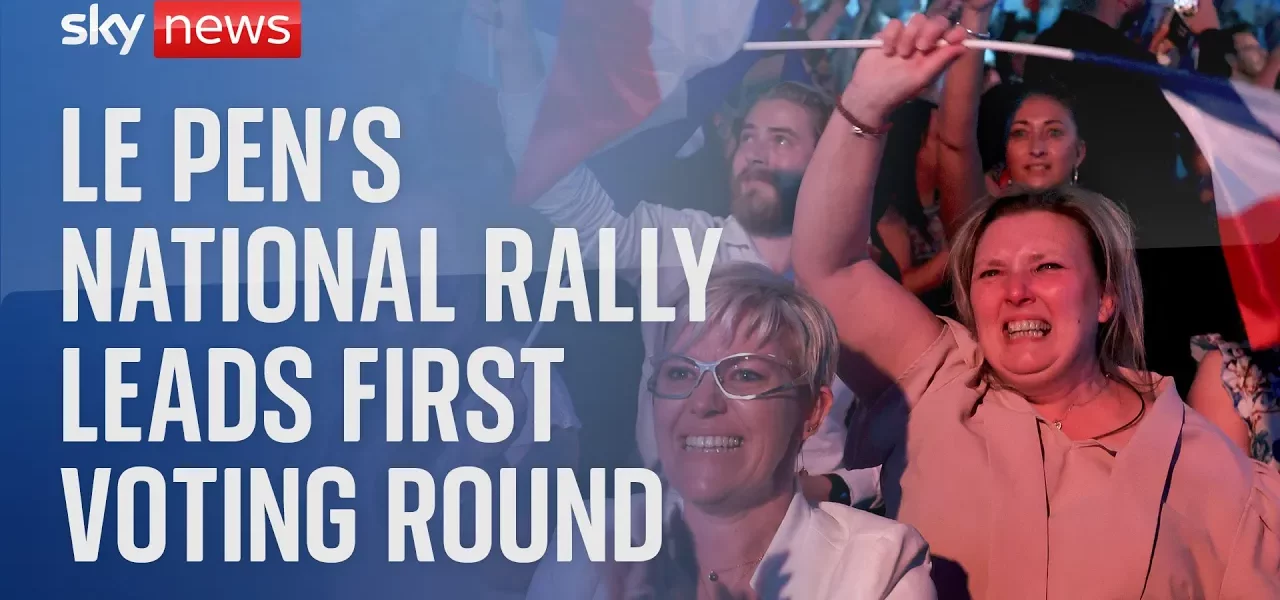French Election Exit Polls: A Shift in Political Landscape

This article delves into the recent results of the exit polls from the French parliamentary elections, examining the performance of various political factions and their potential implications on the country’s governance moving forward.
Introduction
The recent exit polls from the French parliamentary elections have revealed a significant shift in the political landscape of France. The National Rally, led by Marine Le Pen, and the newly formed leftist alliance, have emerged as key players in this election cycle. As the political dynamics continue to evolve, understanding these results is crucial for predicting future governance in France. This analysis will explore the implications of these results, the performance of various parties, and the potential for political alliances in the upcoming second round of voting.
Overview of Exit Poll Results
The exit polls indicate a competitive race with the following results:
- National Rally: 33% to 34% of the vote
- Popular Front (Left Alliance): 28.5% of the vote
- Macron’s Centrist Coalition (Ensemble): 22% of the vote
- Other Parties: Including smaller factions like the Communist Party and Greens
These figures represent a significant moment in French politics, particularly for the National Rally, which has historically faced hurdles in gaining parliamentary representation.
Significance of the National Rally’s Performance
The National Rally’s achievement of approximately 33% of the vote marks a new high for the party in a national parliamentary election context. This performance could lead to:
- A potential largest block in Parliament during the second round.
- Increased influence on legislative processes in France.
- Challenges for President Emmanuel Macron in pursuing his agenda.
Marine Le Pen’s Leadership
Marine Le Pen’s leadership continues to resonate with a significant portion of the electorate. Her party’s visibility and the appeal of its hard-right platform seem to have gained traction, defying earlier expectations based on polling data.
The Emerging Leftist Alliance
The Popular Front, an alliance hastily formed just three weeks before the election, has performed admirably, garnering approximately 28.5% of the vote. This coalition consists of:
- The Communist Party
- The Greens
- Socialist Party members
- Other left-leaning factions
Implications for Leftist Politics
The success of the leftist alliance indicates a resurgence of left-leaning politics in France, potentially reshaping future policy discussions and legislative efforts.
Challenges Ahead
Despite their success, the leftist alliance will face challenges in maintaining cohesion among its diverse members and effectively countering the influence of the hard right.
Macron’s Centrist Coalition: A Risky Gamble
President Emmanuel Macron’s centrist coalition, Ensemble, has not fared well, receiving around 22% of the vote. This outcome raises questions about the effectiveness of his recent political strategy:
- Was the decision to call for a snap election too hasty?
- How will this impact Macron’s ability to govern?
- What strategies will he employ to regain support?
Macron has called for a rallying of Republican and Democratic candidates, indicating a need for strategic alliances in the upcoming second round.
Conclusion
In summary, the exit polls from the recent French elections highlight a significant shift in the political landscape, with the National Rally and the leftist alliance emerging as key players. The results suggest a challenging environment for President Macron and his centrist coalition as they navigate a fragmented parliamentary landscape. Moving forward, the formation of political alliances will be crucial for governance in France. As the second round approaches, it is imperative for all parties to reassess their strategies and engage with the electorate effectively. Stay tuned for further analyses and updates on this evolving political situation.
“`




